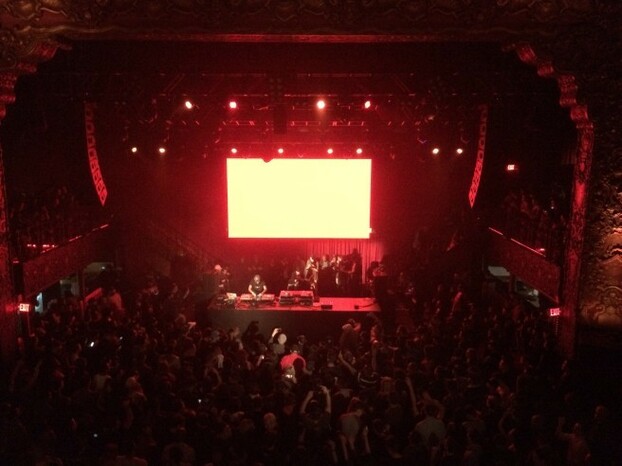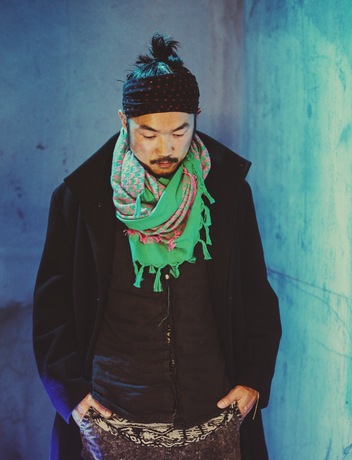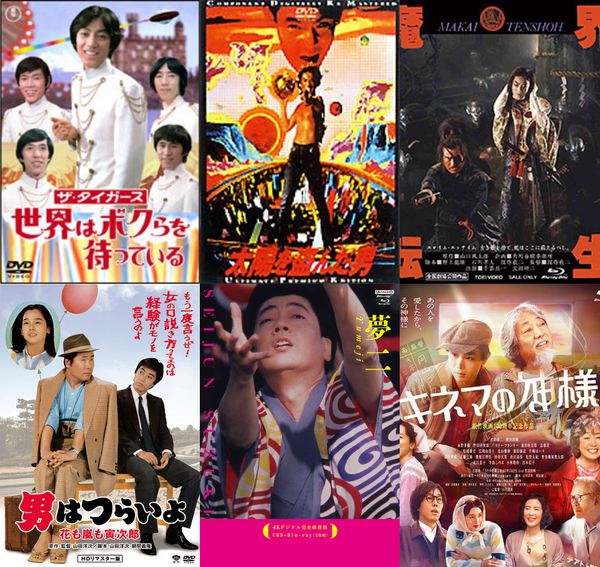

Photo by VZMAESTRO
【starRo's Los Angeles Such and Such】Vol.7
Written by: starRo
Hi there! We’re already counting the 7th post of the series, and thanks to ya all, I am flattered to say that every post lately is making it high up in the high-traffic ranking of the site, and if I sound a bit full of myself, rest assured, I’ll tell this man to get things under control. … yes, I will.
Now, perhaps very much due to the wonderful impact from the serial, for a fairly good number of occasions across the latest few months, I have been asked of advice from Japanese people aspiring to pursue their musical careers here in the US. It’s more heard lately of the dramatic decrease of international-minded Japanese people, and it seems like the number of foreign students from Japan to prestigious universities in the US have shown a sharp decline. Given that, I was thinking that there would be only a handful people who would ever think of pursuing their musical dreams overseas, but who knew!! When it comes to providing advice, I take them very seriously and try to answer as properly and honestly as possible. Still, I always come back to the question ―am I even qualified to provide any such advice? Including that and to pass down a few tips to everyone, let me take this opportunity to explain how I came to play and pursue my current musical career in the US, as well as what it means and the consequences it brings, all based on my raw experiences.
Why am I in the States?
When people come to me for advice, they are most predominantly under the wrong preconception that I came here to the US to succeed with music from the very beginning. Sorry, but WRONG! In fact, when I set foot in the country, I was a normal ―truly normal― office employee. Yes, I did have the love for music, and was actually making tracks on and off as an extension of my hobby, occasionally blurting out ‘I’m going to become a musician some day!’, but that was more equivalent to a soccer-enthusiastic boy dreaming of ‘joining FC Barcelona’ or something. Anyhow, the only reason I landed in the States was to change my lifestyle by moving to and living in the US.
So, for not less than the first couple or 3 years in the US, I was leading a very simple and bland life, working an ordinary job and not being involved much in music. Fact is that I was just too desperate to get my life on track, and the thought of getting into music did not even cross my mind for once. Let me be honest here, ―making a decent living in the US is so unimaginably hard than doing the same back in Japan. Speaking on the premise that one would seek to reside in major cities of the US (―I mean, what’s the point of coming to US to work up your music if you’re not in big cities like LA or NY?), things like healthcare costs so much more compared to in Japan where the out-of-pocket ratio is much lower, and the various living expenses are usually much more expensive than in Tokyo. In order to secure the minimum level of living where public safety is reasonably secured, in the case of a major city in the US, you will just have to spend more.So again, for the first few years in my case, it was a struggle, but after about 4 or 5 years and thankfully getting a promotion in wage, I finally found myself with a basis of livelihood, finally allowing me a bit of room to breathe. Only after that could I think about getting back in to music avocationally. Putting it the other way round, for me, the grounds to lead a decent life as an American citizen was already in place before I set out for my musical quest.
From this experience, the first point I want to pass on to those considering coming to the US to start their musical career is that, the biggest hurdle you will find looming in your way is the handicap of not being able to make a decent living, and that will become a hindrance in going head-on with other artists in America on an equal footing. Imagine having the ability to play baseball for a major league, but having to work a side job just to maintain your daily life. You’d probably be no match to the other members on the team.
Another one difficulty is that you might not have enough time before you start ‘blooming’ as an artist. The bottleneck (for a non-US citizen) of living in the US is usually the means to stay in the country legally, and the obtainment of the visa that allows that is usually a painstaking process. The easiest method is to acquire a student visa by enrolling into an educational institute in the US, but tuitions are pretty outrageous here, especially if you are thinking of a four-year college. The most simple and quickest way to get yourself here is probably to enroll for a one-year language course. Still, just know that the road to be able to stand on your own feet as an artist is a loooooong way to go. Even the musicians enjoying the spotlight at the forefront of the US scene needed years and years of hardworking to see the sun, so imagine how low the likelihood is for someone to see the light in a mere one to four years.
Precisely, the success as an artist truly depends on the steadfast support of the many people around you. Also, there will have to be a market that accepts you as an artist at the first place. You can’t expect anything to go as smoothly as you want it to, and trying to cram everything into a short amount of time in an attempt to bring on any result will only lead to letting the opportunities to succeed slip away. In the end, it’s a world of perseverance and sedulousness.
I must say I was truly lucky to have been hired by a company who first called for the work skills I had, provided support in getting my visa, and then went on to assist me through the green card obtainment after my 5 years of stay in the country. But that was only because I was concentrated on the work I was given during that time with no moonlight business with music whatsoever.

Everything ―the venue, Belasco Theatre and the great lineup― was absolutely glam they felt surreal.
What can be passed on to those aspiring to come to US in the near future
So that’s my story. It wasn’t that I originally set foot on this land to pursue my musical career, and I was lucky enough to be hired at a company that provided support for the visa, and it was after a fairly long detour that I got to make a living out of being a musician. Given this, I’m now thinking that as much as I don’t recommend moving over to the US and starting over in the upcoming near future, neither do I think I’d be of much use as an advice-giver.
But then, by no means do I think that people should not come to US in pursue of their dreams to succeed in the field of music. What I hope to pass on to those who wish to do so is that; not limited to music, if you are thinking of crossing borders foreign-land-bound to try out your art and armory, just make sure you are prepared well enough to be able to play on the same stage. If you’re aiming for the major league, for instance, rather than setting out to the field as a minor league trainee struggling to make a living in the new land with hardly any income, you might as well establish your position in the Japanese professional baseball circle and get bought out by the US major league, ―living conditions and playing conditions all sorted out right from the very start.
If you’re a musician, take advantage of the current world of internet that easily puts out your works to the world, and focus on gaining a certain level of reputation both in name and reality first in Japan where it is the most easiest to be (and lead a decent life). The ultimate ideal is to bring yourself to a state that once you step foot in the US, a stream of offers for appearances at shows or studio works comes in, nonstop. In the case of music in particular, unlike the world of sports where you are evaluated instantly with the raw outcomes, the criteria is more whether the person (artist) himself/herself sells well or not, so you will need this certain something to prove ‘why you are convinced you will sell well.’ If you’re headed toward the US, some kind of draw that appeals easily to the American audience; experience(s) of collaborating with western artists, a hefty number of followers of your SNS account or perhaps experience of winning the champion at a World DJ championship etc., ―these are what would serve as your ‘business card’ and unless you have this on you, no one will pay attention to you, meaning you won’t even get to stand at the starting line. But those are the very kind of selling points one can prepare while still in Japan.
As you would be aware, Asians in the US music business still remains very much the minority. Though, we are seeing a prominent rise especially in the Korean artists making their ways to US lately, and it seems like finally Asia as a whole, including Japanese artists, are gaining a certain degree of attention. So keep it coming from Japan ―the steady flow of quality music from Japan is what will lead to a day when a number of artists find their ways into the spotlight. In that, I strongly believe!
So, there we are, that’s all from me for this time. In the next post, I will be (hope to be) talking about the rise of Asian artists and taste in the US music scene.
Also, note that I will be back in Japan for a show this May. It’s my first Tokyo/Osaka performance with the shows last April being the last, so I sure look forward to seeing you all there! See you soon!
Friday, May 13th, 2016 CONPASS in Shinsaibashi, Osaka
(Performance with Seiho etc.)
※ Click here for details
Saturday, May 14th, 2016 Sound Museum Vision GAIA, Tokyo
(Performance with Mr. Carmack, Jarreau Vandal, Yukibeb etc.)
※ Click here for details
PROFILE:starRo

Producer based in LA. Listed under the attention-garnering LA-based collective of label&artists -Soulection-, starRo has released on SoundCloud a number of remix works including those of Frank Ocean, Outkast, Rihanna or Usher, on top of his own original tracks, and has also written for multiple artists such as Yumi Shizukusa (Japanese singer-songwriter) etc. His first EP “Emotion” was released in February 2015. He tours and plays shows on a regular basis, of which latest information can be found here!






















